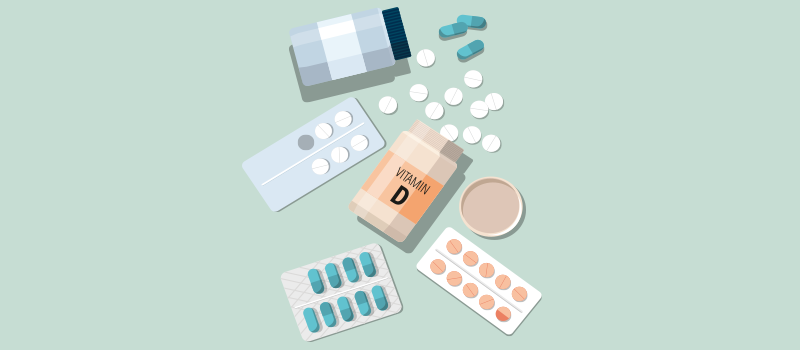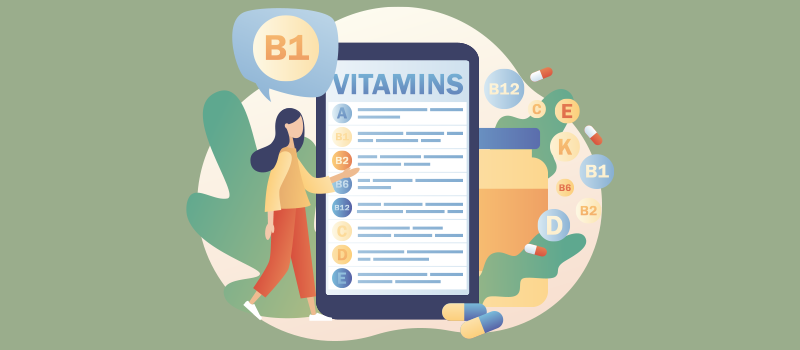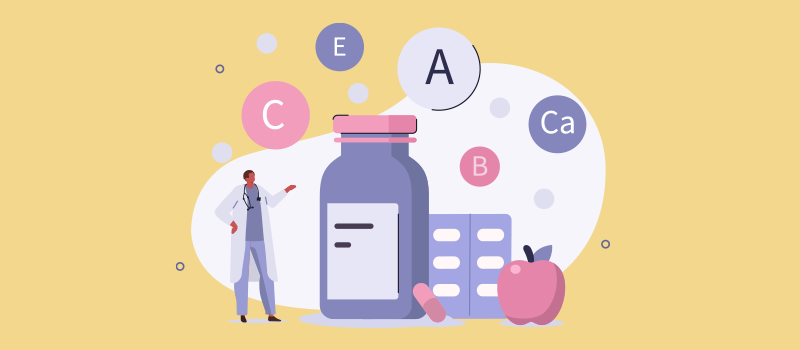What’s the Buzz
The Bee Healthy Blog
How Much Vitamin D is Enough?

Vitamin D is one of the most important vitamins for overall health. Essential in regulating the amount of calcium and phosphate in the body, vitamin D keeps your bones strong and healthy.
The most common way to receive Vitamin D is through sunlight—although there are other ways to take in vitamin D, like through food and supplements. Read on to find out all the health benefits and everything you should know about this crucial vitamin.
What is Vitamin D?
Vitamin D, also referred to as “calciferol” is a fat-soluble vitamin that assists the body in promoting healthy bones and teeth, supporting the immune, brain and nervous system, regulating insulin levels, and supports lung and cardiovascular health[1]. Vitamin D is produced when the skin is exposed to ultraviolet UV rays, but is also present in foods and available as a dietary supplement[2].
How Much Vitamin D Should I be Taking?
Vitamin D intake can be measured in micrograms (mcg) or international units (IU). One microgram of vitamin D is equal to 40 IU. The recommended daily intake varies by age below[1]:
- Infants 0–12 months: 400 IU (10 mcg).
- Children 1–18 years: 600 IU (15 mcg).
- Adults up to 70 years: 600 IU (15 mcg).
- Adults over 70 years: 800 IU (20 mcg).
- Pregnant or lactating women: 600 IU (15 mcg).
What Kind of Vitamin D Should I be Taking?
Vitamin D has two main forms, D2 (ergocalciferol) and D3 (cholecalciferol), both are well absorbed in the small intestine, and can help meet your vitamin D requirements. Vitamin D3 is only found in animal-sourced foods, whereas D2 mainly comes from plant sources and fortified foods. Sources of Vitamin D3 include fish oil, egg yolk, butter, and dietary supplements. While sources of Vitamin D2 include: mushrooms, fortified foods, and dietary supplements[3]. Vitamin D is available both in supplement form as a liquid, tablet, or capsule and can even be administered as an injection by a doctor.
How to Know if You Have a Vitamin D Deficiency
Some signs include: fatigue, bone and back pain, hair loss, muscle pain, decreased energy/mood, and delayed wound healing. Vitamin D deficiency can be very dangerous and cause complications such as: cardiovascular conditions, autoimmune problems, neurological diseases, infections and pregnancy complications. Vitamin D deficiency is common and most people are unaware of it. If you think that you have a vitamin D deficiency, it’s important to visit your doctor and get your blood levels measured.
Check out all of our savings on Vitamin D!
[1] https://www.healthline.com/health/food-nutrition/benefits-vitamin-d#fights-disease
[2] https://ods.od.nih.gov/factsheets/VitaminD-HealthProfessional/
[3] https://www.medicalnewstoday.com/articles/161618#_noHeaderPrefixedContent











SOCIAL